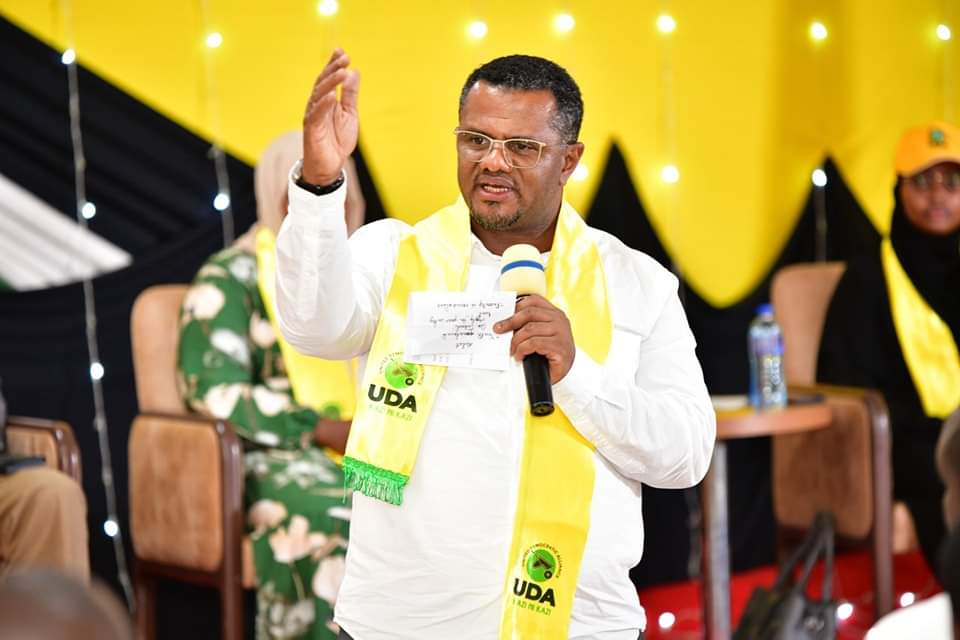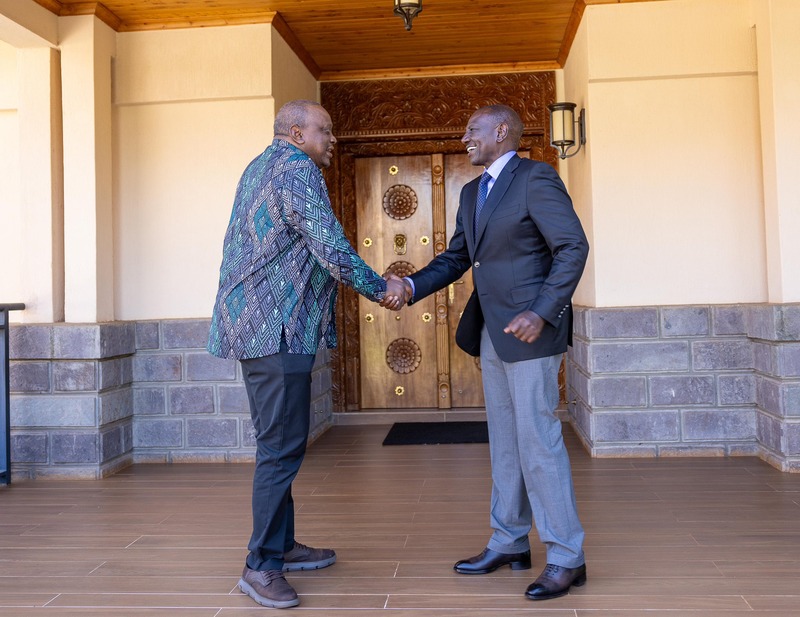UDA calls for withdrawal of Azimio court case blocking IEBC reconstitution

Wiper Party leader Kalonzo Musyoka rejected allegations from the government that his litigation case was causing the delay.
The United Democratic Alliance (UDA) party has called on the Azimio Coalition to withdraw a court case that is halting the reconstitution of the Independent Electoral and Boundaries Commission (IEBC).
In a statement on Tuesday UDA Secretary General Hassan Omar explained that the delays in the IEBC process were not the government's fault, as has been suggested by critics.
More To Read
- Fahima Abdallah elected new IEBC Vice Chairperson
- Kenya's democracy, future in IEBC's hands - CJ Koome
- High Court to rule today on legality of Ruto's IEBC nominees
- Kenyans can directly appoint IEBC when systems fail - Karua
- Tuesday court verdict on President Ruto’s IEBC nominees could reshape Kenya’s electoral path
- IEBC on brink: Commission CEO risks jail over Sh441 million unpaid legal costs
"Mischievously, there has been an attempt to apportion blame on the Government for the delays in the constitution of the IEBC, which cannot be further from the truth," Omar said, clarifying that the delay stems from an injunction issued by the Kiambu Law Courts, which blocked the formation of a panel to recruit new commissioners.
The ruling party noted that the party and the government have complied with all necessary requirements to ensure the swift constitution of the IEBC.
"We call upon the litigants in the referenced case, who are members of the Azimio coalition, to withdraw their case to enable the process to be completed," Omar said.
"We also implore upon the Judiciary to consider the possibility that the need for the constitution of the IEBC far much outweighs any grievances of any person that may be prejudiced in the formation of the recruitment panel."
The party expressed its eagerness for the reconstitution, noting their readiness to participate in upcoming by-elections across various wards and constituencies, which have remained vacant for the past two years.
UDA's statement was also prompted by recent accusations that the government was responsible for the delay in the process.
This issue resurfaced when Supreme Court Judge Isaac Lenaola urged the government to expedite the IEBC reconstitution, triggering a renewed online call to #AppointIEBCNow.
In response, Wiper Party leader Kalonzo Musyoka, a member of Azimio, rejected allegations from the government that his litigation case was causing the delay.
"On IEBC, we adhered to the strict timelines of the Court and we gave the name Koki Muli," Kalonzo said.
"The state itself has filed an appeal with the Kiambu High Court against our decision. They want candidates who are easy to influence and manipulate. It is a Ruto strategy to ensure there is no IEBC."
Uncertainty
As the case continues, the country faces uncertainty with the matter set to be heard in January 2025.
Meanwhile, during a private meeting on Monday at former President Uhuru Kenyatta's Gatundu home with President William Ruto, the issue of IEBC reconstitution was also discussed.
 President William Ruto and former President Uhuru Kenyatta when they held a private meeting at Kenyatta’s Gatundu home on December 9, 2024. (Photo: PCS)
President William Ruto and former President Uhuru Kenyatta when they held a private meeting at Kenyatta’s Gatundu home on December 9, 2024. (Photo: PCS)
Uhuru stressed the importance of a transparent process and continuous engagement with stakeholders, stressing that a lack of transparency breeds suspicion and mistrust.
"In a democracy, even good ideas that lack transparency breed suspicion and mistrust. Continuous engagement is essential for an all-inclusive democratic process," Uhuru stated.
The delay in constituting the IEBC has also raised concerns regarding the commission's ability to meet key constitutional deadlines.
The IEBC is facing a crisis as it struggles to conduct the review of constituency and ward boundaries, a process that was due by March 2024 but remains unaddressed due to the absence of key commissioners.
In a recent appearance before the National Assembly's Petitions Committee, IEBC Chief Executive Officer Marjan Hussein Marjan revealed that the commission has sought an advisory opinion from the Supreme Court.
The inquiry seeks clarification on whether the boundary review can proceed without a full panel of commissioners and if the constitutional deadlines for the review can be extended.
Article 89(2) of the Constitution mandates the IEBC to review constituency and ward boundaries every eight to 12 years, with the last review conducted in 2012.
The absence of a full commission, following the expiration of terms and the removal of dissenting commissioners in 2023, has left the IEBC unable to fulfil its mandate.
The Attorney General's advice against proceeding with the delimitation without a full commission has prompted the IEBC to petition the Supreme Court for clarification.
The Attorney General cautioned that proceeding without the necessary commissioners could lead to legal challenges, political instability, and electoral integrity concerns.
"We seek the Supreme Court's guidance on whether the commission can undertake the delimitation process without commissioners if the review can occur after timelines have lapsed, and whether the constitutional deadlines can be extended," Marjan said.
Top Stories Today












































